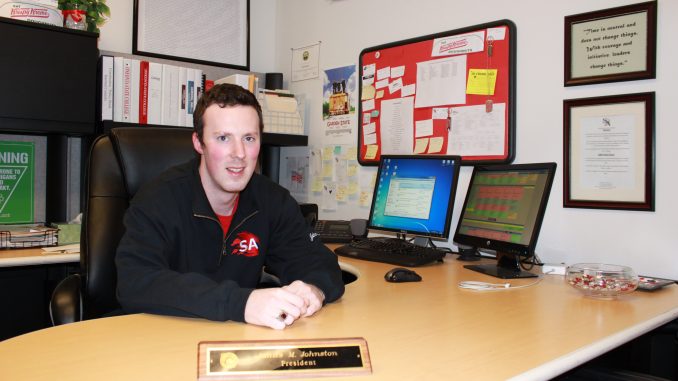
Ari Saati, Editor-in-Chief

The Student Association (SA) proposed Medical Amnesty bill has effectively passed the College Council, and will be added to student code of conduct, pending a legal review by SUNY’s legal council. The bill, which protects students from disciplinary and judicial repercussions when seeking drug and alcohol related medical aid on campus, passed with a 4-2 vote in the council’s February 22 meeting.
The College Council is comprised of faculty, staff, community members and local professionals. SA President, Jimmy Johnston, who authored the bill, sits as the only student on the board: “I kind of just did this going out on a limb, I didn’t think that it would have any chance of passing. I’m an undergraduate music industry major, and these are a bunch of people with PhD’s that do this for a living. I really didn’t see this happening, but I thought I might as well try,” said Johnston.
The SA’s Medical Amnesty bill came in sharp contrast to the administration’s proposed change to the student code of conduct, which sought to add a “Good Samaritan” clause. It stated: “The College cannot guarantee absolute immunity from sanctions associated with violations of the Code or state and federal law. However, efforts will be made to mitigate sanctions associated with alcohol and other drug offenses for ‘Good Samaritans.’”
Johnston, who is a volunteer with the Oneonta State Emergency Squad (OSES), firmly believed the success of the new policy lies in providing students with complete immunity, however. “[‘Good Samaritan’] isn’t going to do anything, all the research shows medical amnesty only works if it’s guaranteeing students they’re not going to get in trouble. If you tell a student they might not get in trouble if they dial the phone, it doesn’t really have that effect,” said Johnston.
Oneonta’s current code regarding alcohol and drug related medical incidents falls under the disorderly conduct and abusive behavior policy and places students under a year of probation with follow-up substance abuse education.
In order for the Medical Amnesty bill to be added to the student code of conduct, its legality must be cleared by SUNY Legal Counsel, a stipulation made by the College Counsel in its passing. Andrea Stagg, the legal counsel for Oneonta, New Paltz and Plattsburg, declined to be interviewed.
Medical amnesty in higher education has become increasingly prevalent at large private universities such as MIT, Harvard, NYU, Princeton and most notably Cornell, whose policy became the framework for Johnston’s. Many SUNY schools have adopted the approach as well, including Albany, Ferdonia, Binghamton and New Paltz, with which Stagg is the active legal counsel.
This new way in handling medical emergencies rooted in drugs and alcohol was brought to Oneonta following a round table discussion held at SUNY Cortland for volunteer emergency squads across the state, early last semester. “The majority of the schools there were on board with a medical amnesty policy,” said Karina McKitrick, OSES membership lieutenant and Oneonta senior. “When we brought up our policy, they kind of looked at us like we were crazy.”
Some members of the administration are still hesitant, hoping for a smooth transition from our current policy to one of medical amnesty, pending the legal counsel review. “One of the things we’ve pointed out is the incredible contradiction it creates in our code now. Let’s say you live on campus and you’re drinking, partying, making a lot of noise. You hear a knock on the door and suddenly you’re written up for an alcohol violation, and you’re placed on probation,” said vice president of student Development, Steven Perry. “Another student comes back after a night of drinking so intoxicated that they have to medically evaluated, taken to the hospital…they’re not placed on probation, is that fair?”
The new policy will mandate medical counseling in lieu of probation and judicial ramifications. However, it includes a provision under which students transported to the hospital multiple times will be subject to a form of judicial review.
“It hasn’t officially went through the lawyer, so I’m not trying to celebrate too much yet, but I’m just glad it went through,” said Johnston. “People say you can’t do anything with student government, but we changed the rules of the college, against the will of the administration. It’s just kind of a big deal.”
Leave a Reply